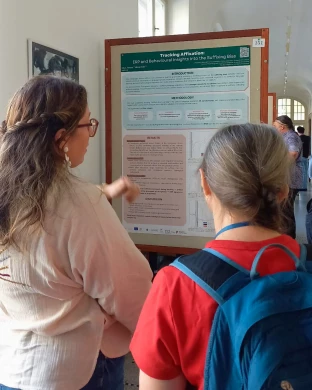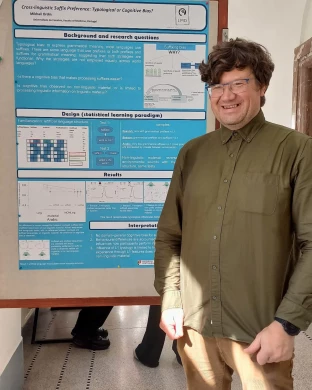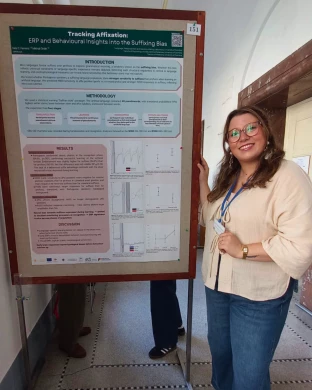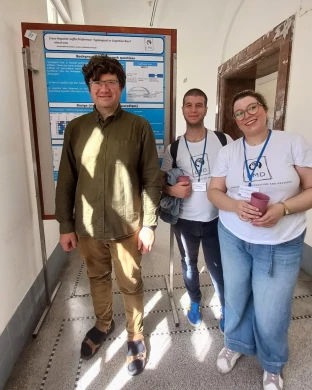LMD Laboratory Presents Research at AMLaP 2025
The LMD Laboratory took part in the 31st edition of the Architectures and Mechanisms for Language Processing Conference (AMLaP 2025), held in Prague. This participation was made possible through the WordLearn project, funded by the Portuguese Foundation for Science and Technology (FCT), and featured the presentation of two scientific posters on the cognitive and neural mechanisms underlying language learning.
From September 4 to 6, members of the LMD laboratory attended the 31st annual Architectures and Mechanisms for Language Processing (AMLaP) conference in Prague. The laboratory presented two scientific posters within the scope of the FCT WordLearn project, which is funded by the Portuguese Foundation for Science and Technology.
PhD student Inês C. Ferreira presented the work “Tracking Affixation: ERP and Behavioural Insights into the Suffixing Bias.” This study examined how adults learn affixation regularities in an artificial language, combining behavioral and electrophysiological measures. Although no clear suffix advantage was observed in behavioral performance, the neural results revealed asymmetries consistent with Portuguese typology, suggesting that sensitivity to affixation patterns emerges even in the absence of evident behavioral effects.
Dr. Mikhail Ordin and Dr. Leona Polyanskaya presented the poster “Emergence of suffixing bias: Affixation patterns in L1 and sequence processing by statistical learning mechanisms.” This research explored the typological question of why most of the world’s languages preferentially rely on suffixes, even though prefixes are also functional. The results showed that, in linguistic material, sequences with affixes were recognized better than sequences without affixes, but no differences were found between prefixes and suffixes. Thus, no evidence was found for a general cognitive bias toward suffixes. The observed differences were attributed to the typology of the native language, which influences processing only in linguistic material, without affecting the processing of non-linguistic material.
The participation of the LMD Laboratory at AMLaP 2025 reinforces the relevance of the FCT WordLearn project and its contribution to understanding the cognitive and neural mechanisms involved in language learning.




